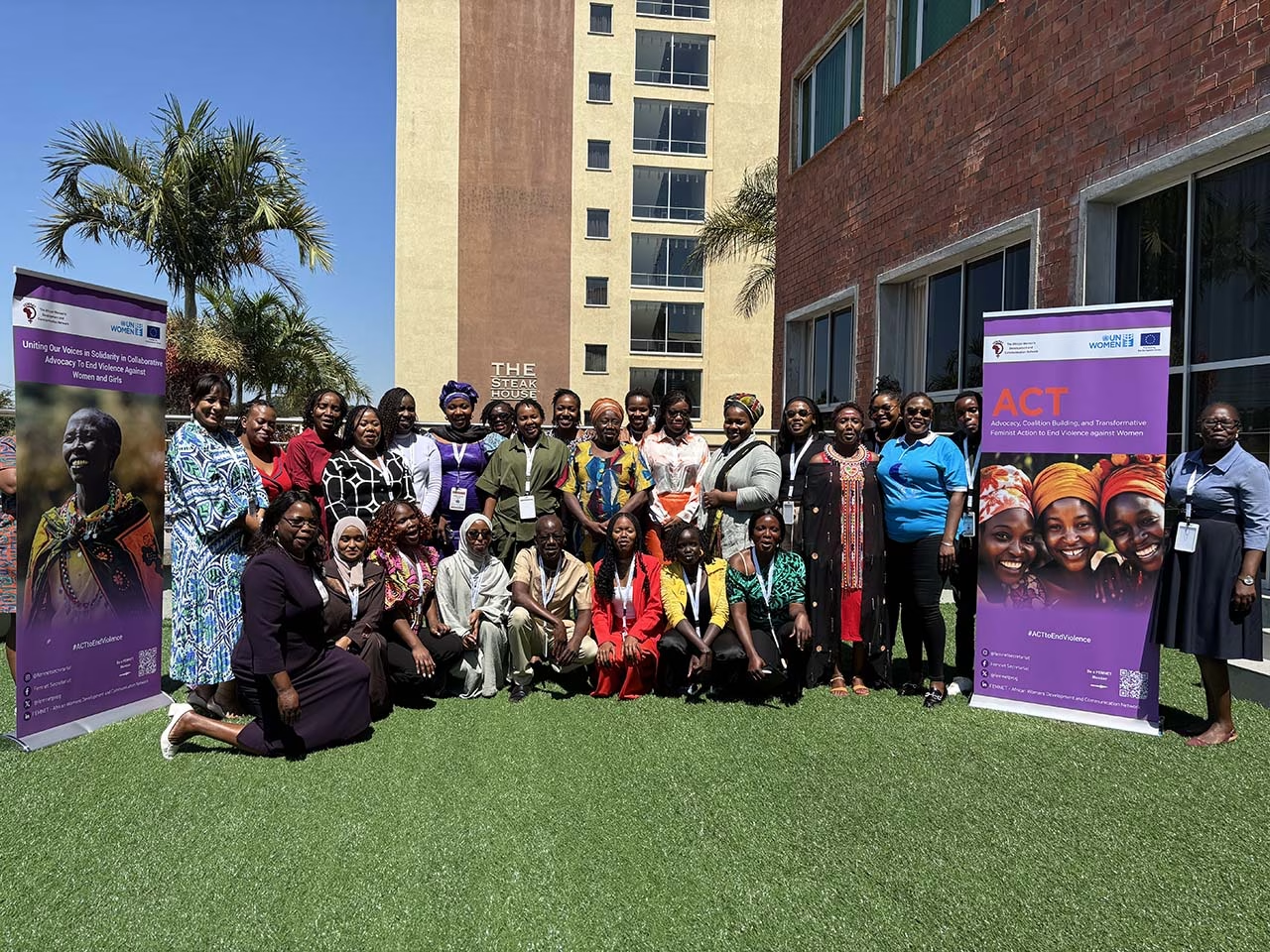
From Data to Disruption: Feminist Advocates Gear Up for Change at the ACT EVAWG Training
Ending Violence Against Women and Girls (EVAWG) demands more than passion—it requires strategy, data, and the collective power of feminist action. This was the heartbeat of the Technical Capacity Strengthening on EVAWG Advocacy & Influencing, a bold gathering of feminist advocates from across East and Southern Africa.
Held under the ACT to End Violence Initiative (Advocacy, Coalition Building, and Transformative Feminist Action), the training convened passionate changemakers from Kenya, Uganda, Malawi, Zambia, Zimbabwe, Eswatini, and South Africa. Over several days, participants immersed themselves in a high-impact space that sharpened their advocacy skills and deepened their understanding of what it takes to drive lasting policy and social change.
At the core of the training was the SMART Advocacy model—Specific, Measurable, Achievable, Realistic, and Time-bound. Participants walked through the entire cycle of planning and executing effective advocacy campaigns, from setting goals to mapping decision-makers and developing persuasive messaging.
“For the first time, I feel confident planning an advocacy campaign with clear steps. The SMART model gives me structure and clarity,” shared Loice Keter from Kenya.
Another transformative pillar was the data for advocacy session, which challenged participants to move beyond anecdotal storytelling and ground their demands in timely, fact-checked data. Advocates explored sources like UN Women’s EVAW Global Database, WHO prevalence studies, and Demographic and Health Surveys (DHS)—gaining insight into the power and politics of data.
“We often use stories in our work, but now I see how data can elevate those stories into powerful evidence,” said Patience, from Malawi.
“If we’re asking for change, we must show why it’s necessary—and what the cost of inaction looks like,” added Grace from Eswatini.
The training connected local struggles to global and regional legal frameworks that guide EVAWG efforts, including the Maputo Protocol, CEDAW, the Beijing Platform for Action, and the Africa Strategy to End Violence Against Women and Girls (2022–2032). Through this lens, participants strengthened their demands for government accountability and effective implementation.
“It reminded me that we are not starting from scratch—our role is to connect the dots, push for implementation, and make our voices impossible to ignore,” noted Winnie Adile Akidi from Uganda.
A standout highlight was the Position Paper development session—an interactive workshop where participants transformed passion into strategic influence. In national teams, they crafted evidence-based policy positions, identified priority issues, and developed concrete, actionable recommendations.
“We talk about issues all the time, but this session taught us how to formalize our demands into something that can shift policy,” reflected Beatrice from Uganda.
“It felt like turning passion into power.”
Throughout the training, solidarity and sisterhood were the thread that held everything together. Participants connected across borders, exchanged hard truths and bold visions, and re-energized each other with stories of resistance and resilience.
“Listening to others from the region gave me hope,” said Anjili Hawoldar from Mauritius. “We are fighting the same fight—just in different languages.”
Taking a Stand: No More Silence, No More Excuses
The message from this convening was clear: EVAWG is not inevitable. It is a systemic injustice—and it is preventable. We cannot tiptoe around perpetrators, nor can we afford apathy from institutions. It is time to call out impunity, break the silence, and demand accountability.
We call on:
- Governments to fully fund and implement EVAWG commitments enshrined in legal frameworks;
- CSOs and feminist movements to remain unrelenting in naming and resisting violence in all its forms;
- Donors and partners to support intersectional, rightsholder-led work—not just in rhetoric, but in sustainable funding and political backing.
This is not just another workshop. It is a rallying cry.
As the training came to a close, participants didn’t just walk away with notes and frameworks—they left equipped with new tools, renewed purpose, and a shared commitment to feminist disruption.
“This wasn’t just training—it was a turning point. We leave here stronger, louder, and more united than ever before.”
#ACTtoEndViolence
